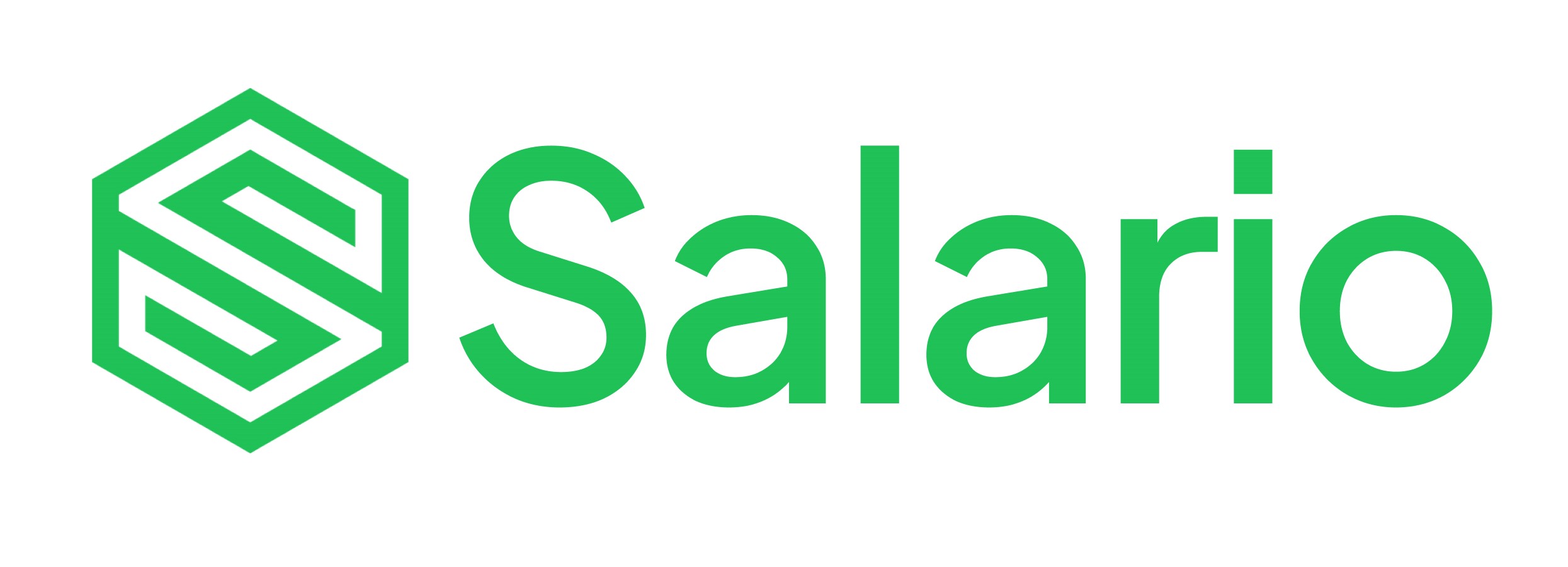
In a bustling tech startup office, an HR manager’s heart races as a State Internal Revenue Service (SIRS) audit loom, fearing penalties from a miscalculated PAYE tax in Nigeria. Meanwhile, an employee in another company stares at her payslip, worried by deductions that shrink her take-home pay, unsure if they’re correct. Whether you’re a business owner ensuring compliance, an HR manager trying to avoid fines, or an employee seeking clarity, understanding PAYE tax in Nigeria is important.
Accurate calculations prevent costly penalties and build trust. This guide provides business owners, HR managers, and employees, with step-by-step breakdown on how to compute PAYE tax in Nigeria, with how Salario’s automation tools can help simplify the process.
What Is PAYE Tax in Nigeria?
Pay As You Earn (PAYE) is a personal income tax deducted from employees’ salaries by employers and remitted to the State Internal Revenue Service (SIRS). Governed by the Personal Income Tax Act (PITA) 2011, amended by Finance Acts 2019–2020, PAYE tax in Nigeria funds state development projects while ensuring tax compliance. It applies to all employees in public and private sectors with taxable income, directly impacting their net pay. For employers, accurate computation of PAYE tax in Nigeria is key to avoiding audits and penalties. For employees, it’s about understanding deductions to plan finances. Getting it right benefits everyone, from business owners ensuring smooth operations to workers securing their financial clarity.
Who Is Responsible for PAYE Tax in Nigeria?
Computing and managing PAYE tax in Nigeria involves clear roles for employers and employees. Employers are responsible for deducting PAYE from employee salaries and remitting it to the SIRS by the 10th of the following month. They must also file annual returns by January 31. Employees provide accurate tax information, such as their Tax Identification Number (TIN), and verify deductions on payslips. Exemptions apply to those earning below the minimum tax threshold (₦70,000 annually under PITA). Non-compliance carries heavy consequences: fines up to ₦500,000 or 6% interest on unpaid taxes, as outlined by SIRS. Understanding these responsibilities ensures compliance and transparency in handling PAYE tax in Nigeria.
Step-by-Step Guide to Computing PAYE Tax in Nigeria
Step 1: Determine Taxable Income
To compute PAYE tax in Nigeria, start by identifying an employee’s taxable income. This includes:
– Basic salary
– Housing allowance
– Transport allowance
– Other taxable benefits (e.g., leave allowance)
Exclude non-taxable items like pension contributions, National Housing Fund (NHF), or meal vouchers. For example, Tunde, a teacher in Lagos, earns ₦150,000 (basic), ₦50,000 (housing), and ₦20,000 (transport). His taxable income is ₦220,000 monthly (₦2,640,000 annually).
Step 2: Apply Consolidated Relief Allowance (CRA)
The Consolidated Relief Allowance (CRA) reduces taxable income. Per PITA, CRA is calculated as ₦200,000 or 1% of gross income (whichever is higher), plus 20% of gross income. For Tunde’s ₦220,000 monthly income:
– 1% of ₦2,640,000 (annual) = ₦26,400
– CRA = ₦200,000 (higher than ₦26,400) + (20% × ₦2,640,000) = ₦200,000 + ₦528,000 = ₦728,000 annually (₦60,667 monthly).
Step 3: Calculate Taxable Income After Relief

Subtract CRA and exempt items (e.g., pension contributions) from gross income. Tunde’s 8% pension contribution (₦17,600 monthly, ₦211,200 annually) and CRA reduce his taxable income:
– Annual taxable income = ₦2,640,000 – ₦211,200 – ₦728,000 = ₦1,700,800
– Monthly taxable income = ₦141,733.
If the result is negative, no PAYE tax applies.
Step 4: Apply PAYE Tax Rates
Apply PITA tax bands to the taxable income (annual rates):
– First ₦300,000: 7%
– Next ₦300,000: 11%
– Next ₦500,000: 15%
– Next ₦500,000: 19%
– Next ₦1,600,000: 21%
– Above ₦3,200,000: 24%
For Tunde’s ₦1,700,800 annual taxable income:
– First ₦300,000: 7% = ₦21,000
– Next ₦300,000: 11% = ₦33,000
– Next ₦500,000: 15% = ₦75,000
– Next ₦500,000: 19% = ₦95,000
– Remaining ₦100,800: 21% = ₦21,168
– Total annual PAYE = ₦245,168
– Monthly PAYE = ₦245,168 ÷ 12 ≈ ₦20,431.
Step 5: Deduct and Remit PAYE
Deduct the calculated PAYE (₦20,431 for Tunde) from the employee’s salary and remit to the SIRS by the 10th of the following month. File annual returns by January 31 to reconcile payments. For example, an SME with 10 employees remits ₦200,000 total PAYE monthly, ensuring compliance to avoid SIRS penalties.
Step 6: Verify and Issue Payslips
Provide employees with payslips detailing PAYE deductions. Employers should verify remittances via SIRS portals or Tax Clearance Certificates (TCCs). Employees can cross-check deductions against PITA tax bands. Salario’s self-service portal simplifies this, allowing employees to access payslips instantly, ensuring transparency in PAYE tax in Nigeria.
Common Mistakes to Avoid When Computing PAYE Tax
Errors in computing PAYE tax in Nigeria can lead to costly consequences. Common pitfalls include:
– Incorrect Taxable Income: Including non-taxable benefits like pension contributions or NHF, inflating tax liability.
– Missing Reliefs: Forgetting CRA or exempt items like life insurance premiums, increasing employee deductions.
– Late Remittances: Missing the 10th-of-the-month deadline, incurring 6% interest penalties or fines up to ₦500,000.
– Manual Errors: Spreadsheet mistakes, can lead to huge fines or penalty for PAYE miscalculations.
Avoiding these errors ensures compliance and maintains employee trust in handling PAYE tax in Nigeria.
How Salario Simplifies PAYE Tax in Nigeria

Computing PAYE tax in Nigeria doesn’t have to be a burden. Salario, a Nigerian-focused payroll automation platform, streamlines the process for SMEs, schools, and businesses with:
– Automated Calculations: Computes PAYE accurately using state-specific rates and PITA guidelines, eliminating manual errors.
– Timely Remittances: Schedules payments to SIRS by the 10th, ensuring compliance and avoiding penalties.
– Employee Self-Service Portal: Employees access payslips with PAYE details on their phones, boosting transparency and reducing HR queries.
– Compliance Reports: Generates SIRS-compliant reports for seamless audits.
– Scalability: Supports businesses with both low and high numbers of employees, with secure cloud-based access.
Conclusion: Take Control of PAYE Tax with Salario
Mastering PAYE tax in Nigeria is essential for business owners, HR managers, and employees. Accurate calculations prevent penalties, build trust, and ensure financial clarity. By following the steps: determining taxable income, applying CRA, using PITA tax bands, and remitting on time, you can navigate PAYE with confidence. Salario simplifies this process with automated calculations, timely remittances, and transparent payslips, saving time and reducing stress. Whether you’re a business owner in Lagos, an HR manager in Abuja, or an employee in Kano, Salario has you covered. Visit our website today to learn more about the services we offer!
